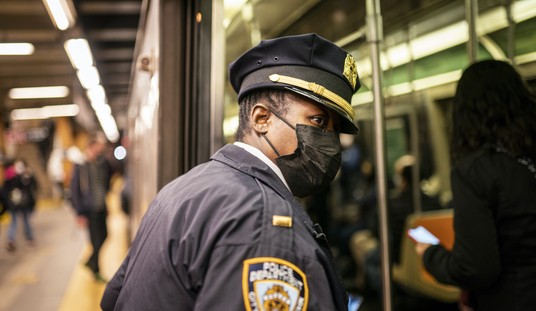Self-checkout stations at grocery stores are fast, convenient, and fairly easy to use. But they're also a magnet for theft and, as losses for retail stores pile up, California may try to do something about it.
Senate Bill 1446, introduced by California State Sen. Lola Smallwood-Cuevas, would remove most self-serve kiosks at large grocery and drug stores, forcing companies to hire more workers. The bill would set certain conditions for self-service stations, including utilizing "no more than two self-service checkout stations that can be monitored by any one employee and the employee has to be relieved of all other duties," according to Fox News.
Some experts believe that the bill would result in a move away from cutting costs by cutting labor. Critics say the bill would impose more unnecessary regulations on stores that are already cutting back on self-serve kiosks. Indeed, this is a transparent attempt to boost hiring at grocery and drug stores at a time when they're already being killed by rising union labor costs.
Smallwood-Cuevas says that her bill would also protect employees who find themselves facing thieves alone. "As self-checkout has become more commonplace, lone workers have become easy targets for theft and violence as they are forced to stock merchandise, operate checkout stations, and cater to customers" all while "trying to monitor their stores for retail theft," Smallwood-Cuevas said.
SB 1446 would prohibit grocery and retail drug stores from offering self-checkout services unless:
- Employees monitor no more than two self-checkout stations at a time and are relieved from all other duties while working with self-checkout stations.
- Self-checkout lanes are limited to purchases of 10 or fewer items.
- Stores prohibit customers from using self-checkout to purchase items that require identification, such as alcohol, and items subject to theft-deterrent measures, including surveillance tags.
- At least one manual checkout station is made available when self-service is available.
Last month, Walmart said it was scaling back its self-service options, as did Target. With $10 billion in annual losses attributed to self-service stations at retail outlets, it would make sense to cut back or eliminate the source of the leakage.
Related: Philly Rolls Back 'Reforms,' Cracks Down on Open-Air Drug Markets, But Will It Work?
Many retailers are not happy with the proposed law. “These measures will only serve to frustrate consumers with no evidence that they will reduce theft or provide additional protection to employees,” said Margaret Gladstein, speaking for the California Retailers Association at an April hearing.
"Self-checkout is an area of the store people can steal things," said the analyst, who noted that shoppers also make genuine mistakes, such as not scanning items properly. "Retailers are very actively trying to reduce it, or in Target's case put more restrictions around self-checkout to try to reduce the losses they incur from it."
Costco in November added more staff in self-checkout areas after finding that non-members were sneaking in to use membership cards that didn't belong to them at self-checkout. Costco said shrink had increased in 2023 "in part we believe due to the rollout of self-checkout."
Another approach is adding a receipt-scanning gate at self-checkout areas, which Safeway has done at multiple locations in California, in addition to shutting down self-checkout entirely in some stores.
It's just too easy to steal at self-checkout unless stores are hyper-vigilant about checking items on the receipt against items in the bag. Then there's the lack of service at self-service stations, with one person covering four or five individual kiosks. This is especially inconvenient when questioning a price or having a scanned item display an error code.
Most people live with the inconvenience because it beats standing in line if you only have a few items to buy. However, stores are finding that the tradeoff with customers may not be worth it.










Join the conversation as a VIP Member